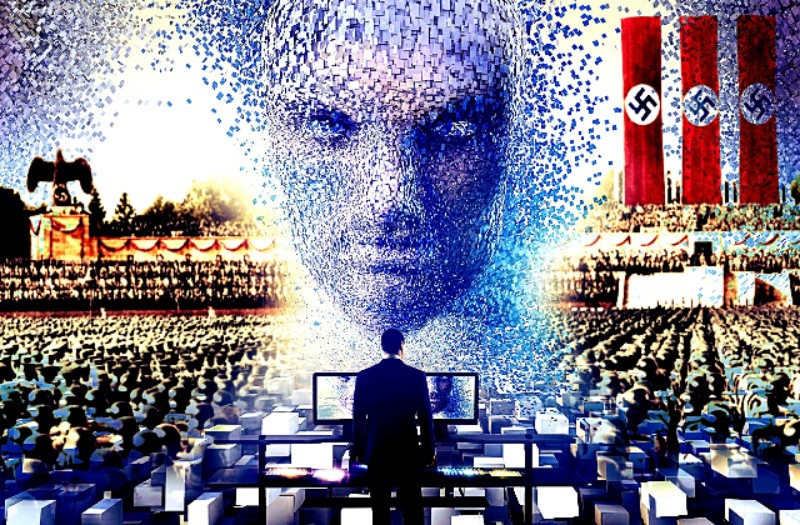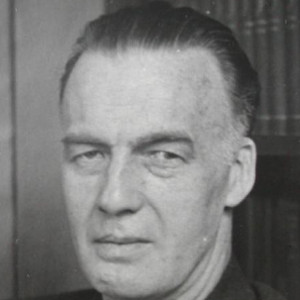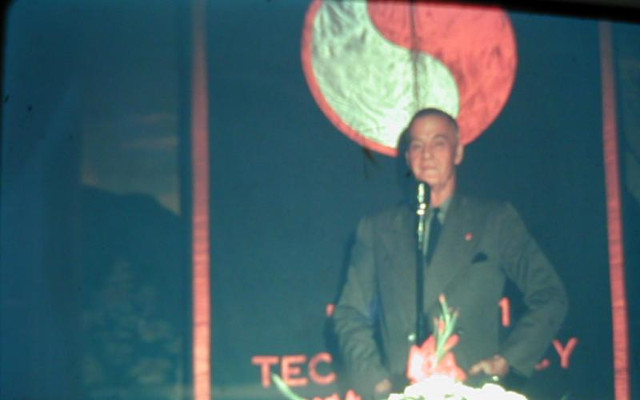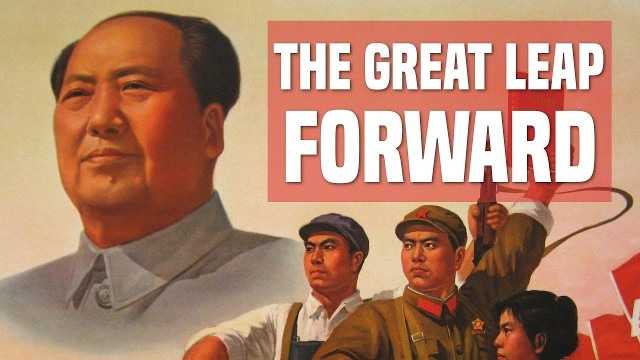CHINA-THE WORLDS FIRST TECHNATE-PART 1

Source: November 23, 2022; Posted By: Iain Davis
We are rapidly moving to a new system of centralized and authoritarian global governance. This system is designed to be a technocracy and is truly totalitarian.
«Totalitarianism is a form of government that attempts to assert total control over the lives of its citizens. It is characterized by a strong central rule that attempts to control and direct all aspects of an individual's life through coercion and repression. It does not allow individual freedom. Traditional social institutions and organizations are discouraged and suppressed, making people more willing to coalesce into one unified movement. Totalitarian states typically pursue a special goal to the exclusion of all others, with all resources directed towards its achievement, regardless of cost.»
That “special” goal is sustainable development and no cost, financial or humanitarian, is too great to address the alleged “climate crisis” . In reality, climate change is simply the excuse for sustainable development and it is through a global political commitment to 'Sustainable Development Goals (SDGs) that the technocracy is being installed.
A technocratic society is called a Technate, and the world's first Technate emerged in China. In this two-part exploration, we'll see how this system was built, who was behind it, and why technocracy is now being forced upon all of us.
These articles are drawn largely from the 2021 publication Pseudopandemic. It is free for blog subscribers.
Global technocratic governance
For global technocracy to be implemented, the authority must be centrally controlled on a global level. Governments, intergovernmental organizations, and multinationals have collaborated to form a global public-private partnership (G3P) for this purpose.
Throughout the 20th and 21st centuries, the G3P network has sought to build global governance. In turn, global governance allows for the worldwide distribution of technocracy which governments then convert into national political commitments. Many components of global technocratic governance have already been established.
The World Health Organization (WHO) provides global public health governance; global access to technological development is guaranteed through the World Intellectual Property Organization; the Organization for Economic Co-operation and Development (OECD) works to coordinate economic policies among nation-states and global trade is monitored and controlled through trade agreements overseen by the World Trade Organization.
The Bank for International Settlements (BIS) coordinates global monetary policy and capital flows; the direction of education, academia, science, and cultural development is led through the United Nations Educational, Scientific and Cultural Organization (UNESCO) and the seizure of the global commons and “financialization” of nature – through natural asset companies and other mechanisms – is nearing completion.

The Sustainable Development Goals (SDGs) are controlled centrally through global governance, primarily by the United Nations Development and Environment Programs (UNDP and UNEP). The necessary global scientific consensus on climate change is centrally administered and the appropriate research funding streams are allocated by the United Nations Intergovernmental Panel on Climate Change (IPCC).
The powerful individuals driving the G3P project forward are a collective of mass polluters, robber barons, land grabbers, and the world's leading exponents of labor exploitation, market manipulation, extortion (usury), and oppression. They form what would otherwise be considered a criminal cartel, but have cleaned up their reputation through their commitment to so-called “sustainable development”.
Often referred to as the elite, a more appropriate description is "the parasitic class".
G3P has managed to convince billions of people that it is committed to sustainable environmentalism, net zero, and wants to “save the planet” . He is actually determined to enhance global governance and impose technocracy on humanity through the SDGs and associated political agendas. Regardless of what one thinks about the causes of climate change or the level of risk it presents, the SDGs do nothing to address it and are designed to serve no one and nothing other than the G3P and its interests.
In order to requisition, commodify, control, and ultimately divide the Earth's resources among themselves, stakeholder capitalists, at the heart of the G3P, also need technocratic control. Once humanity understands what has happened, the technocracy will allow the G3P to shut down the resistance through literal population control.
Every human being will be individually monitored by Artificial Intelligence (AI) networks that will punish or reward them, depending on their behavior. Biosecurity and environmental concerns are bound to provide the justification for this slavery.
Much like the quack pseudo-science of eugenics, which many G3P “thought leaders” seem to believe, technocracy was the certainty of the social sciences of its day. Like eugenics, while it has subsequently faded from the public consciousness, it is still avidly pursued by the compartmentalized hierarchy of the G3P.
Technocracy
In 1911, arguably the world's first management consultant, Frederick Winslow Taylor, published The Principles of Scientific Management. Its publication came at the height of the Progressive Era in the United States.
This was a period marked by middle-class US political activism that sought primarily to address the underlying social problems, as they saw them, of excessive industrialization, immigration, and political corruption. So-called “Taylorism”, fixated on the imminent depletion of natural resources and advocating efficient “scientific management systems”, was in the spirit of the time.
Taylor wrote:
«In the past man was the first; in the future, the system must be the first. […] The best management is real science, based on clearly defined laws, rules, and principles. […] The fundamental principles of scientific management are applicable to all kinds of human activities, from our simplest individual acts to the work of our large corporations.»
Taylorism advocated science-led efficiency reforms throughout society. An effective system should not be run by politicians or religious leaders, but by 'experts', such as engineers, scientists, logistics experts, economists, and other academics. The focus should always be on systemic efficiency and proper use of valuable resources, including manpower.

While Taylor's ideas were influenced by Social Darwinism, he was not a eugenicist. However, his ideas were adopted by eugenicists. He "fitted" with their belief in their unassailable right to rule.
Just as they could optimize and control the human population, so they could employ the right experts to make socioeconomic and industrial systems more efficient. They could promote this as if it were for the "public good" while at the same time consolidating their power and reaping a greater financial harvest from a more efficient industrialized society.
Taylor's Principles of Scientific Management accorded with the theories of economist and sociologist Thorstein Veblan . He proposed that economic activity was not just a function of supply and demand, utility, value, and so on, but rather evolved with society and was thus shaped by psychological, sociological, and anthropological influences.
Both Taylor and Veblan were focused on improving the efficiency of industrial and manufacturing processes. However, they also recognized that their theories could be extended to the broader social context. It was the more expansive application of their ideas that deceived the parasitic class.
Veblan famously referred to "conspicuous consumption" to describe how the wealthy displayed their social standing through their ability to engage in activities and purchase items that were essentially purposeless and wasteful. This "conspicuous leisure" and "consumption" cascaded through the class structure, as those aspiring to signal status emulated the wealthy.
He argued that this was a major contributing factor to the unacceptable waste of resources and inefficiency. The consumer society ultimately produced more goods and services than it needed simply to satisfy the artificial demand created, in his view, for unnecessary and avoidable social demand.
Veblan was strongly against this inefficient use of resources which he attributed to the "business classes" and financiers. He appreciated their contribution to the industrial age, but felt that they were no longer capable of managing modern industrial society.
Initially, Veblan argued that workers must therefore be the architects of the necessary social change that would create economic and industrial reform. Later, in Engineers and the Price System, he shifted his focus away from workers, as drivers of change, toward technocratic engineers.
He called for an in-depth analysis of the institutions that have maintained social stability. Once understood, he said, those with technological skills should reform institutions and thereby design society and improve efficiency. Veblan called these agents of social change a "soviet of technicians".
In 1919 Veblan co-founded the John D. Rockefeller-funded private research university in New York City called the New School for Social Research. This soon led to the creation of the Technical Alliance as Veblan joined a small team of scientists and engineers, most notably Howard Scott, to form a fledgling technocratic organization.

Scott did not like Veblan's description of a technical soviet, calling it "an extravagant thing". The clear association with communism probably wasn't welcome from a public relations perspective, and Scott felt that he undermined what he was trying to achieve with the technocracy movement.
Veblan's involvement with the Technical Alliance was relatively brief and some have suggested that his contribution to the technocracy was minimal, crediting Scott as the great mastermind behind it. Regardless of the extent of Veblan's personal involvement in the movement, his socioeconomic theories permeate the technocracy.
In 1933 the Technical Alliance reformed after an enforced hiatus, prompted by the exposure of Scott as a fraudster: he forged his engineering credentials. The group renamed itself Technocracy inc.
Despite his public humiliation, Scott was a skilled speaker and remained the spokesman for Technocracy inc. He worked with, among others, M. King Hubbert, who would later become world famous for his vague and generally inaccurate "peak oil" theory.
Scott and Hubbert collaborated in writing The Technocracy Inc curriculum to previously introduce the world to technocracy. At the time, the proposed technocracy was technologically impossible and sounded pretty crazy. However, today we are certainly more familiar with these ideas.
Hubbert wrote:
«Technocracy believes that the production and distribution of a continental-scale abundance of physical wealth for the use of all continental citizens can only be accomplished by a continental technological control, governance of function, a Technate.»
The Technate, a technocratic society initially envisioned to encompass the North American continent, would be administered by a central planning body made up of suitably qualified scientists, engineers, and other technocrats. The technocracy would require a new monetary system based on a calculation of the Technate's total energy consumption. People would be given an equal share of corresponding "energy certificates" (as a form of currency) denominated in units of energy (Joules):
«[The] revenues are granted to the public in the form of energy certificates. […] They are issued individually to each adult in the entire population. […] The record of one's income and its rate of expenditure is kept by the distribution sequence, [the expected ledger of transactions]. […] so that it is easy for the distribution sequence to ascertain the balance status of an unknown customer at any point. […]
The Energy Certificates also contain the following additional information about the person to whom they were issued: whether he has not yet started the period of service, is serving or is retired [where the service to the Technate is rewarded with Energy Certificates] [ …] gender, […] the geographic area where you reside, and […] the place where you work.»
A new pricing system was envisioned with all commodities and commodities priced based on the energy cost of producing them. Purchases made with "energy certificates" would then be reported to the appropriate office of the Technocratic Central Planning Committee. Transactions would be cataloged and analyzed, allowing central planners to accurately calculate the moving energy balance, between energy production and consumption, for the entire Technate.
For this system to work, all consumer energy expenditure (including all daily transactions) would need to be recorded in real-time; the national inventory of net energy production and consumption should be constantly updated, 24 hours a day; a record of every commodity and product should be scrupulously maintained, with each individual living in the Technate assigned a personal energy bill. This would be updated to record their energy usage and personal net energy balance.
Hubbert and Scott made it clear that for the technocracy to work, a ubiquitous energy surveillance network would be required. All citizens would be individually identified on the network and every aspect of their daily lives monitored and controlled by technocratic central planners.
A technocracy is a totalitarian form of surveillance-based centralized authoritarian government that abolishes national sovereignty and political parties. Liberty and rights are replaced by the duty to act in the interest of a common good, as defined by the technocrats. All decisions about production, the allocation of resources, and all technological innovation and economic activity are controlled by a technocracy of experts (the Veblan "soviet of technicians" ).
In 1938 in Technocrat Magazine vol. 3 no. 4 (to give it its technocratic specification) technocracy has been described as:
«The science of social engineering, the scientific functioning of the entire social mechanism for producing and distributing goods and services to the entire population.»
For the parasitic class and their G3P-interested partners, technocracy was an irresistible idea. Technocracy potentially allows for the precise engineering of society through the control of resources and energy through the mechanism of a centrally linked, planned, and monitored economic and monetary system.
The Technocracy inc course of study states:
«The significance of this, from the point of view of knowledge of what is happening in the social system, and of social control, can best be appreciated when one looks at the whole system in perspective. Firstly, a single organization oversees and manages the entire social mechanism. This same organization not only produces but distributes all goods and services. Thus there is a uniform system of record keeping for the entire corporate operation, and all production and distribution records are traceable to a central headquarters.»
To control all the parasite class would have to do is a whisper in the ear of a few hand-picked technocrats. There would no longer be a need to bribe politicians or orchestrate international crises. While the Technate was an unviable proposition in the 1930s, it was still something to inspire the G3P and a goal to work towards.

The technocratic opportunity
Realizing that technological development would eventually enable the Technate, Professor Zbigniew Brzezinski (1928-2017) wrote Between Two Ages: America's Role In The Technetronic Era in 1970. At the time, he was a professor of political science at Columbia University, where Scott first met Hubbert in 1932. He had already served as a campaign adviser to Kennedy and Johnson and would later become US President Jimmy's national security adviser Carter (1977-1981).
Brzezinski had a significant influence on late 20th-century US foreign policy, well beyond his years in the Carter administration. Republican Henry Kissinger's Democratic counterpart, was a centrist, and his deep antipathy to the Soviet Union often placed him to Kissinger's right on related issues. He supported the Vietnam War and was instrumental in "Operation Cyclone" which saw the United States arm, train, and equip Islamic extremists in Afghanistan.
He was a member of a number of political think tanks including the Council on Foreign Relations, the Center for Strategic & International Studies, and Le Cercle, and was a frequent visitor to the annual parasite class night, the Bilderberg Conference. In 1973 he and David Rockefeller formed the Trilateral Commission political think tank. Brzezinski was part of the Deep State milieu and the G3P.

Between Two Ages are a geopolitical analysis and practical set of policy recommendations born out of Brzezinski's vision that digital technology would transform society, culture, politics, and the global balance of political power. It also gives us a clear insight into the mentality of the parasitic class.
Brzezinski did not refer directly to technocracy, perhaps wary of its rather inaccurate reputation after Scott's disgrace. However, he described it in detail throughout the book:
«Technological adaptation would involve the transformation of the dogmatic bureaucratic party into a party of technocrats. The primary emphasis would be on scientific competence, efficiency, and discipline. […] the party would be composed of scientific experts, trained in the latest techniques, able to rely on cybernetics and computers for social control.»
He theorized what he called “the Technotronic era” and offered a vision of the near future, from the perspective of the 1970s. Brzezinski predicted that this Era would arise as a result of the Technotronic Revolution. This would be the "third revolution" after the industrial revolution. Klaus Schwab, founder of the World Economic Forum, would later call it the Fourth Industrial Revolution.
Brzezinski wrote:
«Post-industrial society is becoming a “Technotronic” society: a society culturally, psychologically, socially and economically shaped by the impact of technology and electronics, particularly in the area of computers and communications.»
He then went on to describe what he thought life would be like in the Technotronic age for men, women, and their joint families. He predicted how political and industrial control would be replaced by psychological control mechanisms, such as the cult of personality, guiding us toward behavior change. Our lives would be managed through computing power and, in today's parlance, guided by science:
«Both the growing instantaneous computational power of the most complex interactions and the growing availability of biochemical means of human control increase the potential reach of the consciously chosen direction. […] The masses are organized in industrial society by trade unions and political parties and unified by relatively simple and somewhat ideological programs. […]
In the Technotronic society, the tendency seems to be to aggregate the individual support of millions of disorganized citizens, easily within the reach of magnetic and attractive personalities, and to effectively exploit the latest communication techniques to manipulate emotions and control reason.»
He also explained how the technology would allow for extensive behavior modification and population manipulation. He envisaged (suggested) how this could be used as a weapon:
«It may be possible – and tempting – to exploit the fruits of research on the brain and human behavior for strategic policy purposes. […] a system could be developed that would seriously impair the brain performance of very large populations in selected regions over an extended period.»
Zbigniew Brzezinski wrote enthusiastically, through a thin veil of caution, about how a "global scientific elite" could not only use extreme and all-pervasive propaganda, and economic and political manipulation to determine the direction of society but could also exploit technology and behavioral science to genetically alter and brainwash the population.
Describing the shape of this society and the potential for technocratic control, he wrote:
«Such a society would be dominated by an elite whose claim to political power would be based on supposedly superior scientific know-how. Unencumbered by the constraints of traditional liberal values, this elite would not hesitate to achieve their political ends by using the latest modern techniques to influence public behavior and keep society under close surveillance and control.»
He said the "Technotronic age" he described was inevitable. Therefore you said that the future of the United States (and the planet) must be centrally planned. These planners would eventually replace “the lawyer as the key social legislator and manipulator”.
As is often the excuse, warning that others – he meant the Soviet Union – would not hesitate to take this dark path of social engineering, this then prompted the urgent need for US geopolitical strategists to first develop this network of planners (technocracy ). This would be done by merging the government with academia and private companies (the G3P).
He said political parties would become increasingly irrelevant, replaced by regional structures pursuing "urban, professional and other interests" . These could be used to “provide the focus of political action” . He understood the potential of this localized and technocratic administrative system:
«In the Technotronic era, the greater availability of means makes it possible to define more achievable ends, thus making the relationship between "what is" and "what should be" less doctrinaire and more effective .»
He also suggested a redefinition of freedom. Freedom would be achieved through a centrally planned public commitment to social and economic equality. The "public good" is defined by technocrats.
«The positive potential of the Third American Revolution lies in its promise to link freedom with equality.»
Brzezinski recognized that it would be impossible to impose a world government directly. Rather it should be gradually built through a global governance system composed of treaties, bilateral agreements, and intergovernmental organizations:
«While the goal of forming a community of developed nations is less ambitious than the goal of world government, it is more achievable. […] It [global government] attempts to create a new framework for international affairs not by exploiting these divisions [between nation-states] but rather by striving to preserve and create openings for reconciliation.»
One "opening" she was particularly interested in was China. Tensions between Russia and China had continued to rumble and, as Brzezinski wrote in Between Two Ages, escalated into a border conflict. He saw that the Sino-Soviet split had created an opportunity to shape China's modernization:
«In China, the Sino-Soviet conflict has already hastened the inevitable signification of Chinese communism. That conflict shattered the revolution's universal perspective and, perhaps more importantly, separated Chinese modernization from its commitment to the Soviet model.
So whatever happens in the short term, China's development is likely to increasingly share the experience of other nations in the process of modernization in the coming years. This could both weaken the regime's ideological tenacity and lead to more eclectic experimentation in shaping China's road to modernity.»
These ideas were firmly in Brzezinski's mind when he and staunch eugenicist David Rockefeller, whose family had been funding technocratic ventures for more than 50 years, first convened the Trilateral Commission. Eventually joined by other so-called "thought leaders" such as population control expert Henry Kissinger, Club of Rome environmentalist Gro Harlem Brundtland, US presidents such as Bill Clinton and Council on Foreign Relations chair Richard Haass, who most recently wrote World Order 2.0.

Building the Technate in China
Mao Zedong's " Great Leap Forward" saw 40 million people brutalized and starved to death in just three horrific years (1959-1961). Apologists argue that this was all a terrible mistake, but it was no such thing.
Certainty
that food supplies were running out, Mao said in 1958 “distributing resources fairly will only spoil the Great Leap Forward” and later the same year:
«When there isn't enough to eat, people starve. Better to let half the people die so the rest can eat their fill.»
In his zeal to create a communist utopia, Mao presided over a system that seized food from starving millions and exported it to finance his political reforms and determination to rapidly industrialize the economy. It wasn't a mistake or an unfortunate oversight. While many were so terrified that they filed false reports of surpluses that didn't exist, it is clear that the People's Republic of China (PRC) leadership knew exactly what the human costs were. They just didn't care.

And neither is David Rockefeller, as his 1973 op-ed for the New York Times demonstrates. He and his delegation from the Chase Group banking empire had visited Maoist China. In his account of the trip, Rockefeller dismissed the mass murder of millions as "anything". It was the product of genocide that Rockefeller was interested in:
«One is immediately struck by the sense of national harmony. […] There is a very real and pervasive dedication to Chairman Mao and Maoist principles. Whatever the price of the Chinese revolution, it has obviously succeeded, not only in producing a more efficient administration but also in promoting it. [...] a community of intent.»
The trilaterist Rockefeller could see the opportunity that the Chinese dictatorship presented to the parasitic class. In full agreement with Brzezinski, he wrote:
«Too often the true meaning and potential of our new relationship with China have been obscured. […] In reality, of course, we are experiencing a much more fundamental phenomenon. […] The Chinese, for their part, are faced with a change of a mainly inward focus. […] We, for our part, realize that we have largely ignored a country with a quarter of the world's population.»
The "we" Rockefeller referred to was not us. He meant the G3P and its fellow "stakeholder capitalists" and trilateralists.
The totalitarian order in China impressed him as he hoped. He was not the first trilateralist to see the technocratic possibilities in China. The sheer size of the market was a tempting prospect and the promise of the "Technotronic Age" raised the true potential to build the world's first Technate.
Fully discounting the appalling loss of life, Rockefeller wrote:
«The social experiment in China under Chairman Mao's leadership is one of the most successful and important in human history. How widely China opens up and how the world reacts to social innovation. […] is certain to have a profound impact on the future of many nations.»

The task of the G3P was to open up the Chinese market while supporting the ongoing totalitarian regime. China would need aid for its economic development and technical support to build the technological infrastructure needed to make the technocracy work. This process had already begun, but with Rockefeller, Brzezinski, Kissinger, and others committed to the cause, the goal of building a Technate was firmly in the Trilateral Commission's sights.
Trilateralists have begun to help China develop both economically and technologically while remaining careful to avoid pushing too hard for political reform. Totalitarianism was a system they supported and wanted to exploit. In their document no. 15 of 1978 on East-West relations they suggested:
«Granting China favorable conditions in economic relations is definitely in the political interest of the West. It seems that there are sufficient ways to help China in acceptable forms with advanced civilian technology.»
In the same document, the Trilateralists announced that they were not entirely against helping China modernize its military capability, although they stressed that this should only be done for defensive purposes.
They accepted that a modern, militarized China could turn to expansionism and try to reconquer territory it historically claimed as its own, especially Taiwan. They judged that this was a reasonable risk to take.
They were playing the big game. Human lives were of no concern.
In Part 2 we will see how they started building the world's first Technate in China.
John Davis
******
Social media channels are limiting the reach of Megachiroptera: Twitter, Facebook, and other social networks in the Zuckerberg area have created a sort of cosmic void around the page and profile showing updates with delays of hours, if not days.
Megachiroptera receives no money from anyone and does not advertise so there is no monetary income of any kind. Megachiroptera's work is supported only by the passion and the intent to give an address in the midst of this sea of misinformation.
This profile was created out of passion and I have no particular reason to defend one or the other theory, if not an indispensable naive embarrassing love for the truth.
THERE ARE NO PLOTS
THERE ARE PEOPLE AND FACTS
DOCUMENTED

